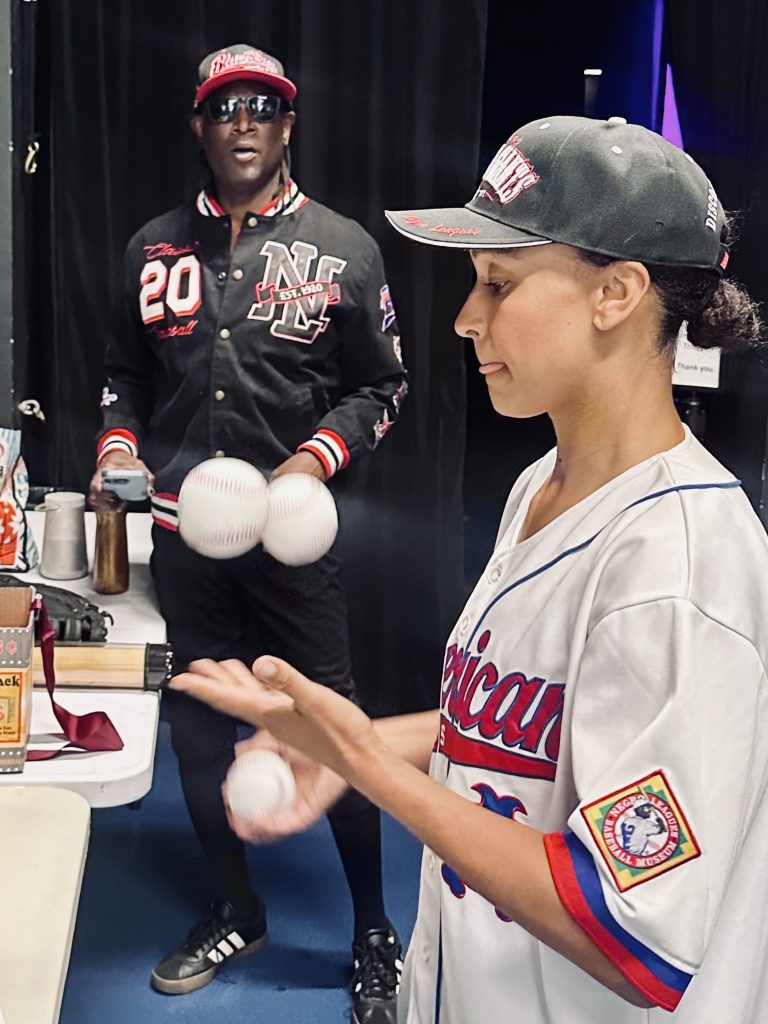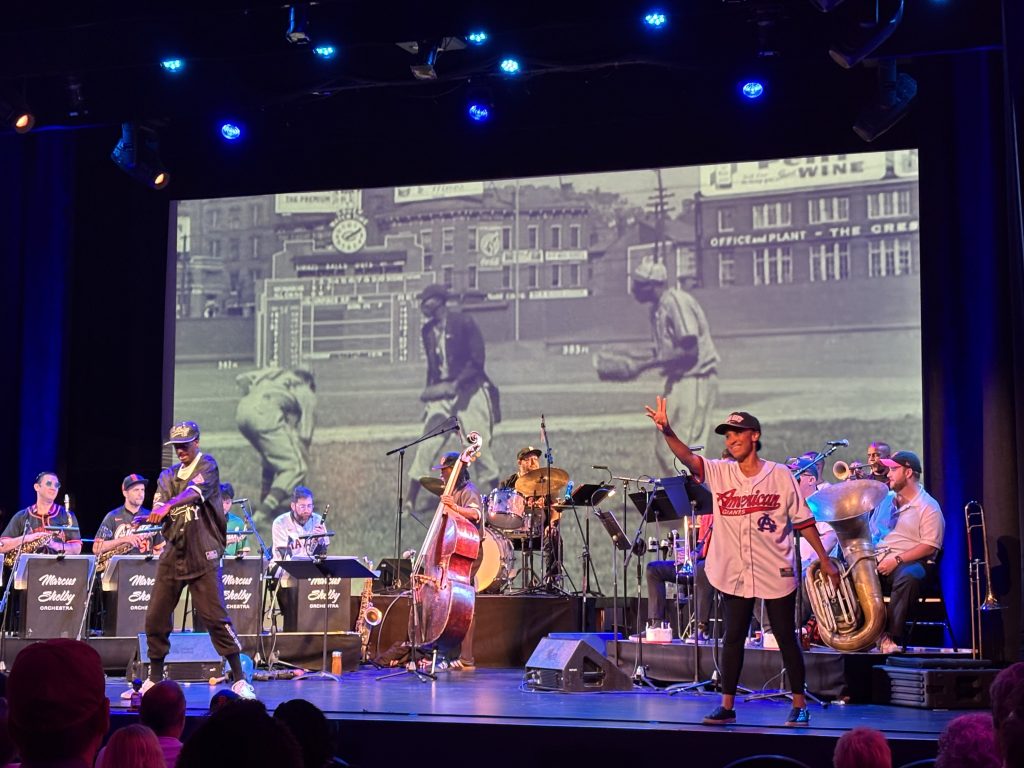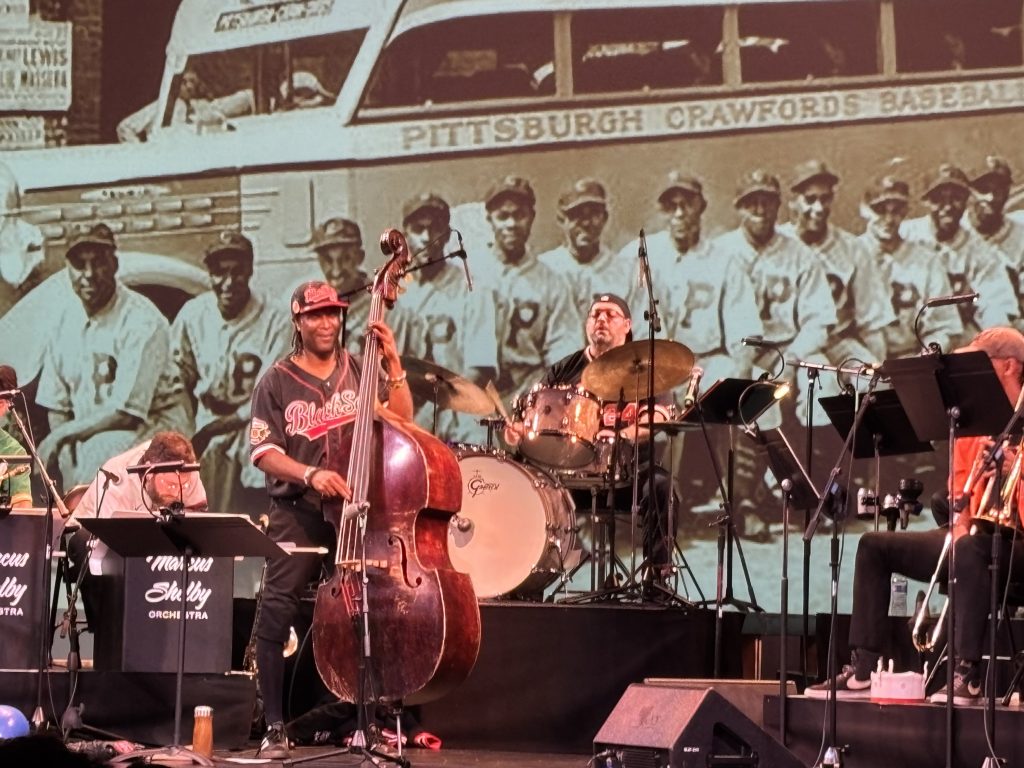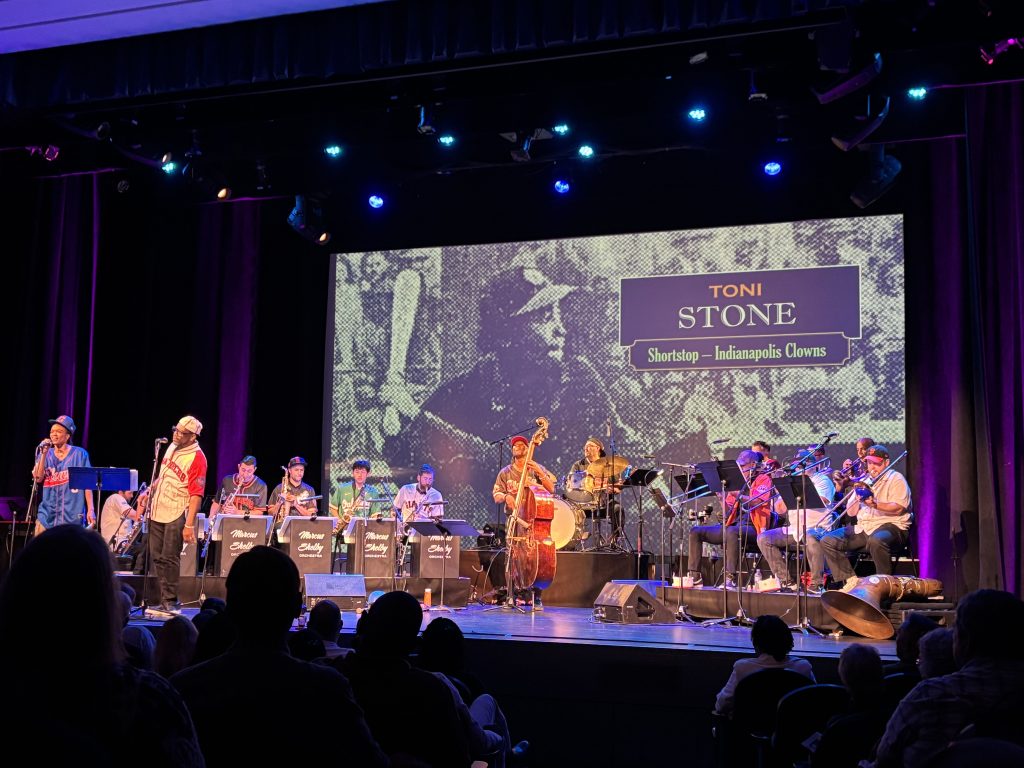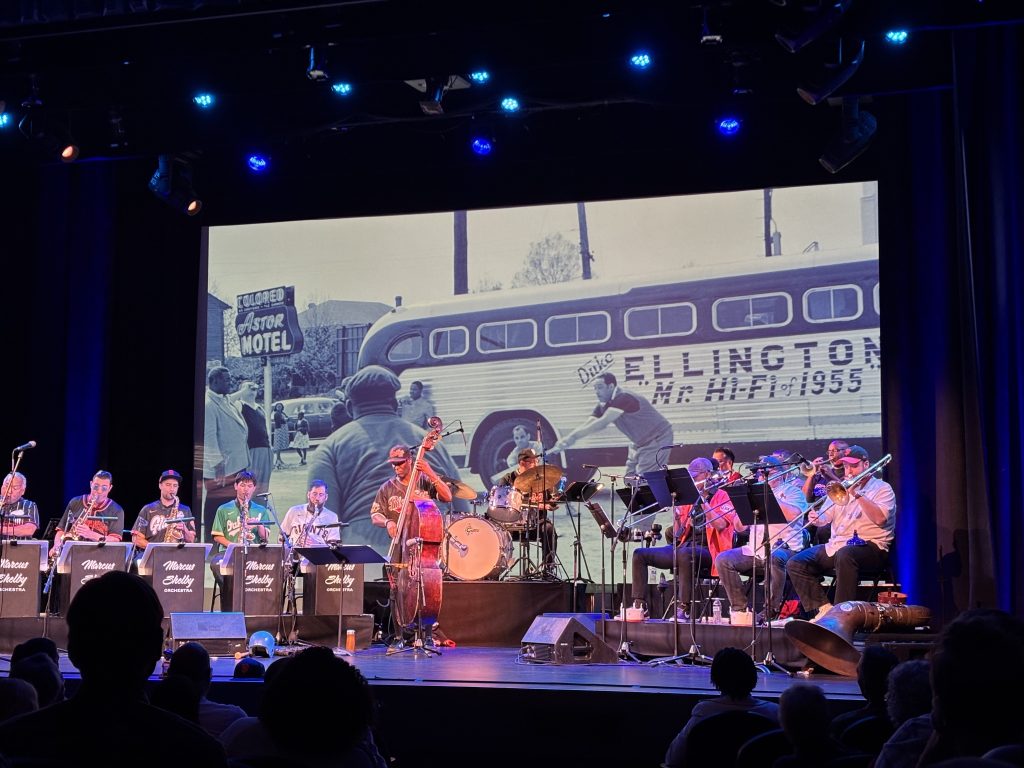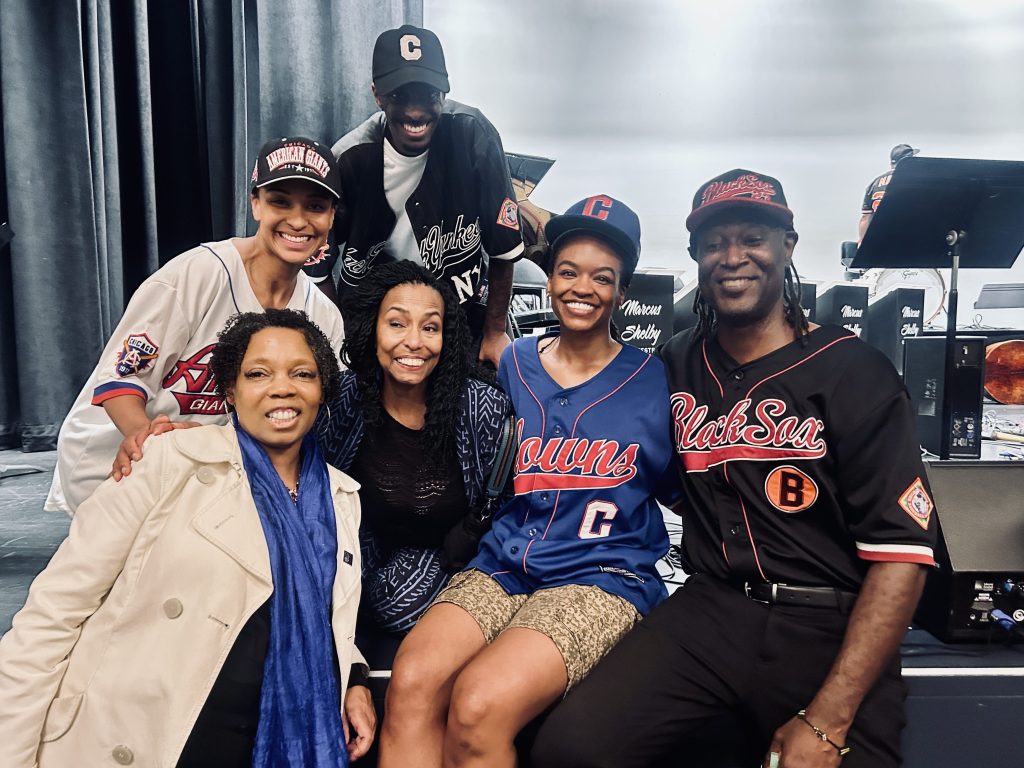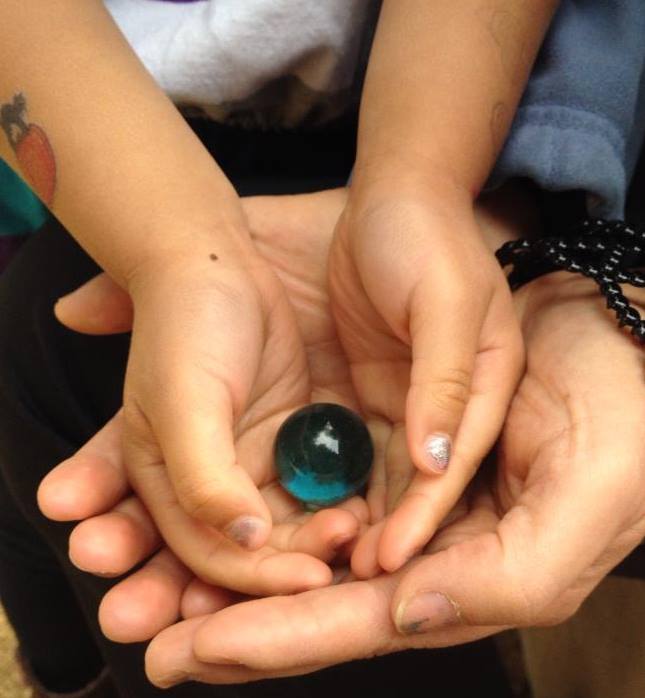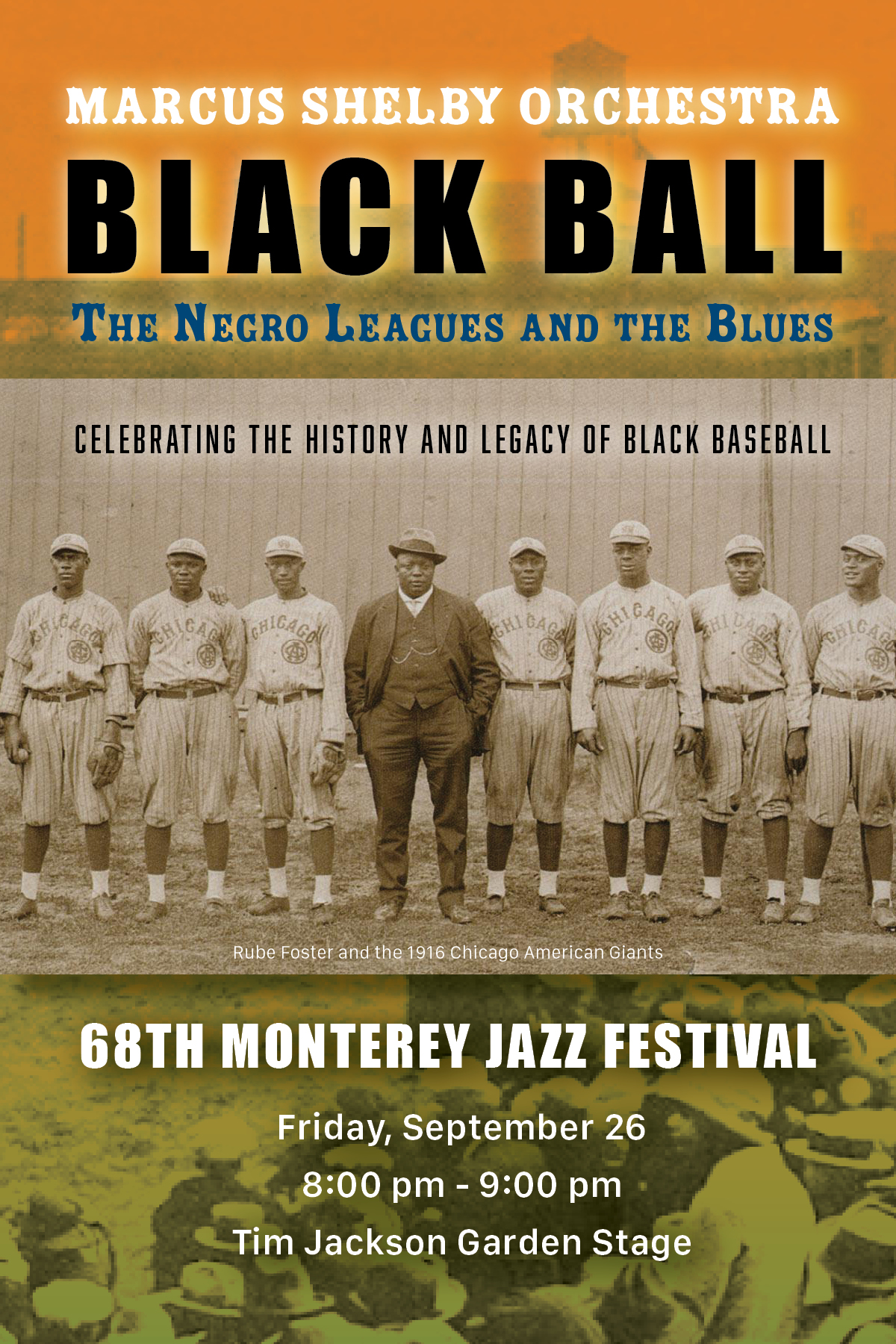
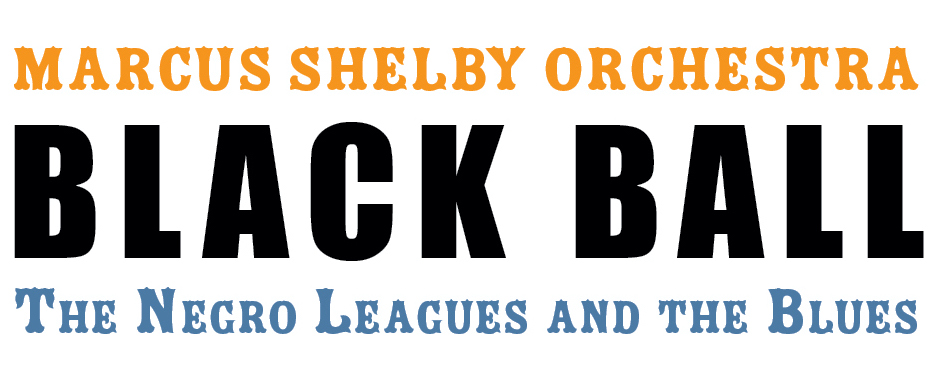
68th Monterey Jazz Festival
Friday, September 26, 2025
8:00pm – 9:00pm
Tim Jackson Garden Stage
Marcus Shelby delves into the glorious, uplifting and heartbreaking story of African-Americans and the national pastime during the Jim Crow era. “Black Ball: The Negro Leagues and the Blues” is inspired by the character, love, courage, brilliance, failure, and humor of Negro League players who made far-reaching but oft-overlooked contributions to American life during the years from Reconstruction through the 1950s.
This one hour program presents selections from the complete 80-minute composition written for the Marcus Shelby Orchestra.
Prelude: Shadow Ballin’
Pittsburg Crawfords
New York Cubans
Barnstormin’
Black Ball Swing
Fleetwood and Welday
Umpire’s Aria
Jackie Broke Barriers
Did You See Jackie
Robinson Hit That Ball?
Alto 1: Brad Leali
Alto 2: Tony Peebles
Tenor 1/Clarinet: Patrick Wolff
Tenor 2: Danny Brown
Baritone: Melecio Magdaluyo
Trombone 1: Danny Lubin-Laden
Trombone 2: Victor Imbo
Trombone 3/Tuba: Jonathan Seiberlich
Trumpet 1: Erik Andrews
Trumpet 2: Mike Olmos
Trumpet 3: Chris Clark
Trumpet 4: Richard Benitez
Vocals: Martin Luther McCoy
Piano: Greg Jacobs
Bass: Marcus Shelby
Drums: Jemal Ramirez
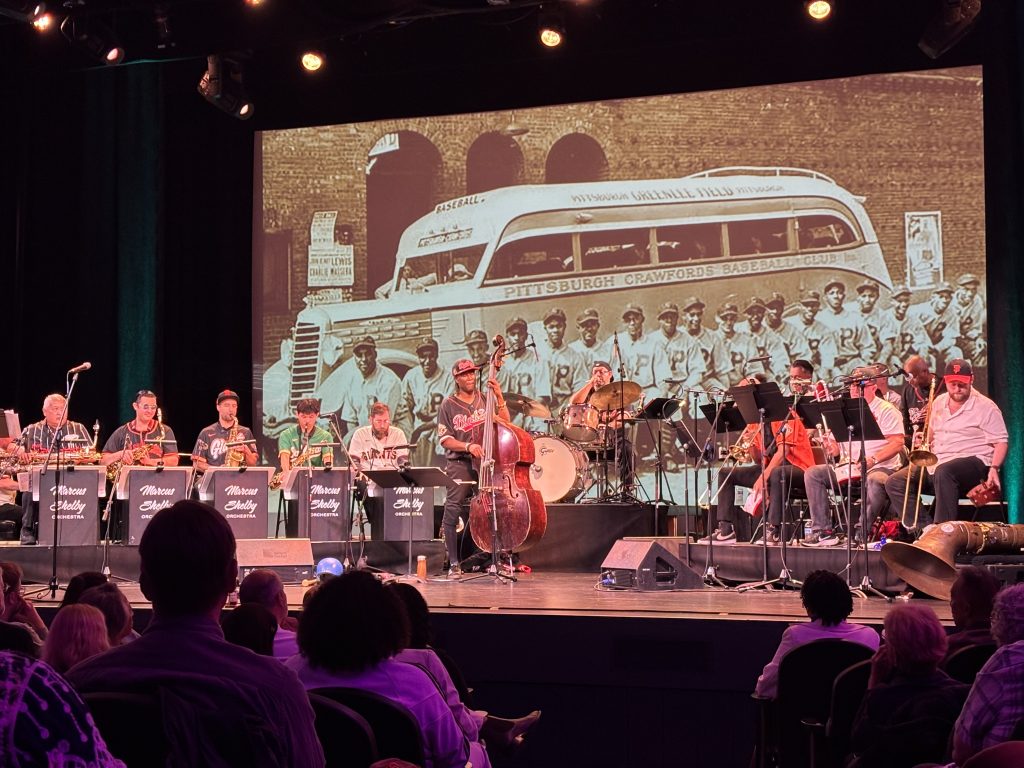
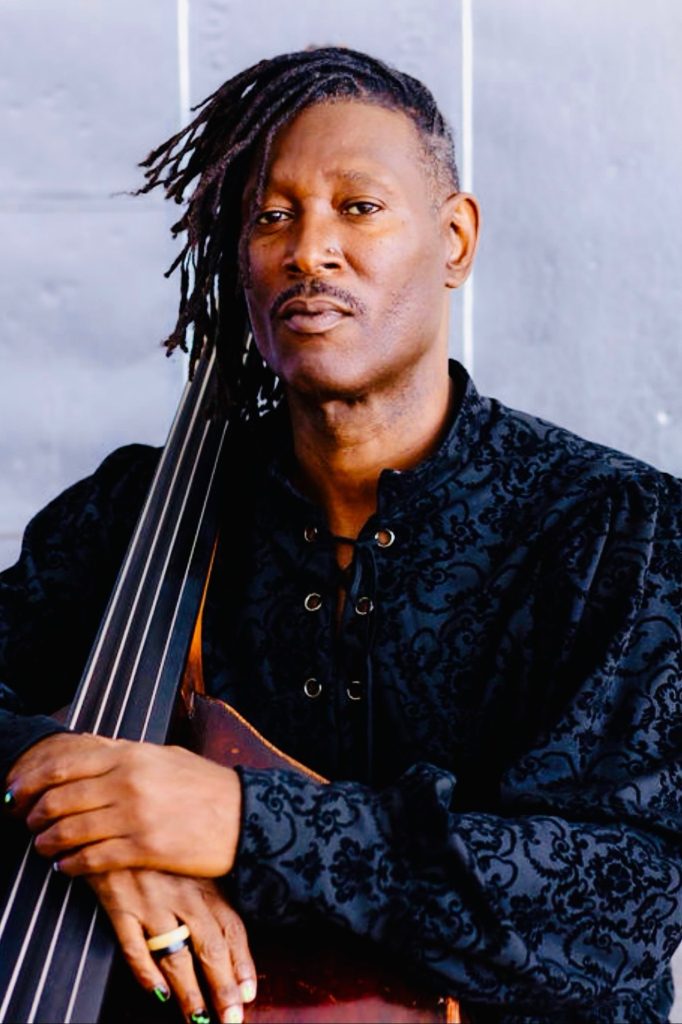
Composer / Bassist
https://marcusshelby.com
Instagram: marcusshelby
Photo by Bethanie Hines
Marcus Anthony Shelby is a composer, bassist, bandleader, and educator who currently lives in San Francisco, California. His work focuses on the history, present, and future of African American lives social movements and music education.
In 1990, Marcus Shelby received the Charles Mingus Scholarship to attend Cal Arts and study composition with James Newton and bass with Charlie Haden. Currently, Shelby is the Artistic Director of Healdsburg Jazz, an artist in residence with the Yerba Buena Gardens Festival, and a past resident artist with the San Francisco Jazz Festival and the Healdsburg Jazz Festival.
Shelby has composed several oratorios and suites including “Harriet Tubman,” “Beyond the Blues: A Prison Oratorio,” “Soul of the Movement: Meditations on Dr. Martin Luther King Jr.,” “Black Ball: The Negro Leagues and the Blues,” “Green and Blues,” and a children’s opera “Harriet’s Spirit” produced by Opera Parallèle in 2018. Shelby also composed the score and performed in Anna Deavere Smith’s Off-Broadway Play and HBO feature film Notes from the Field in 2019. Shelby is also the voice of Ray Gardener in the 2020 Oscar-Winning Disney Pixar film SOUL. Shelby has also worked with a range of artists including Angela Y. Davis’ “Blues Legacies and Black Feminism” (2019), Joanna Haigood’s “Dying While Black and Brown” (2014), Margo Hall’s “Bebop Baby” (2013), and “Sonny’s Blues” (2008), the Oakland Ballet’s “Ella,” The SF Girls Choir (2013), the Oakland Youth Chorus (2014), and many other productions over the past 25 years. Shelby has served on the San Francisco Arts Commission since 2013 and has worked with the Equal Justice Society for over 20 years. The Marcus Shelby Orchestra has released five CDs: The Lights Suite, Port Chicago, Harriet Tubman, Soul of the Movement: Meditations on Dr. Martin Luther King Jr., and Transitions.
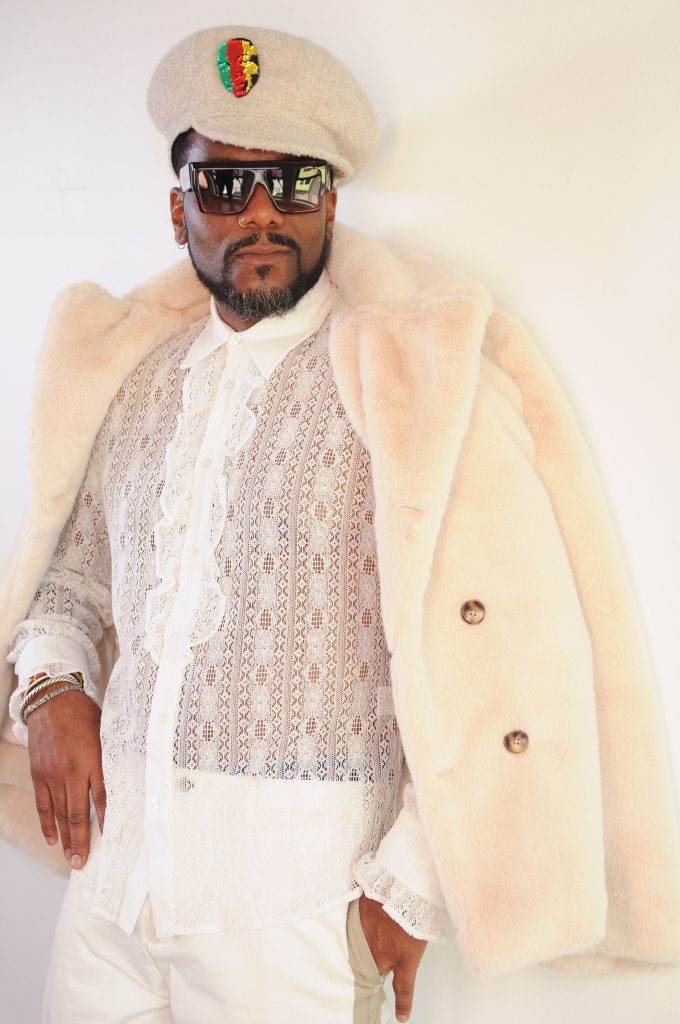
Vocalist
https://martianluther.com/
Instagram: martinluthermccoy
Martin Luther is a soul singer with an un-compromised vision who, via his unique brand of rebel soul music, uses his 2nd tenor voice to captivate audiences from small intimate night clubs, to the big screen. Recognized as one of San Francisco Bay Area’s premiere talents, he has always
presented a distinct blend of jazz funk fusion and more recently served as lead vocalist for the SFJazz Collective. Fiercely creative, he curates a multi genre platform for black excellence through a performance art ensemble called Moon Medicin and as a producer and songwriter, Luther has remained focused recording new music including a suite of jazz standards including “Darn that dream” and Rogers and Hart’s classic “I didn’t know what time it was” which will
appear on his forthcoming EP (spring 2023).
McCoy is most remembered for his break out role of a Jimi Hendrix inspired character named “JoJo” in the motion picture ‘Across the Universe’ (Sony/Columbia), directed by Julie Taymor. He has been seen and heard in commercials, on theatre stages, and on soundtracks like Chasing Liberty and Dave Chapelle’s Block Party and more recentl contributing original music to the score of The Oracle by interdisciplinary visual artist and Moon Medicin co-founder, Sanford Biggers.
Before and post pandemic, Martin Luther has continued to record and release music like the sizzling rnb song “Now”, on his own Rebel Soul Records imprint as well as a number of dance floor thumpers like “Back Tonight” produced by longtime collaborator and international selector, Miguel Migs. A former member of the iconic hip hop group The Roots, Martin’s wide range would eventually land him the job as first lead vocalist hired to join the critically acclaimed and fiercely instrumental, SFJAZZ Collective (2019). “I tend to focus less on what is expected of an artist by the audience and point my attention towards that exciting edge of the unknown, the undone is where it’s at.” Never shying away from paying homage to his influences, Martin has
also enjoyed performing to sold out audiences where he reimagines the music of legends like Marvin Gaye, Sade and Otis Redding.
PROGRAM NOTES
Prelude: Shadow Ballin’
A pre-game staple of the Negro Leagues, “Shadow ballin” refers to a pre-game warm-up routine where players would perform the actions of a baseball game—such as throwing, hitting, and fielding—using only an imaginary ball. The pantomiming of spectacular skill and showmanship delighted spectators who came to baseball games to enjoy themselves and forget about real world hardships like segregation and war. Players such as Reece “Goose” Tatum, the Indianapolis Clowns first basemen (later known as the “Clown Prince of Basketball” with the “world famous” Harlem Globetrotters), were stellar entertainers, much like the musicians of the day.
Negro Leagues Baseball (1946, 8 min.), footage of “Goose” Tatum and other greats,
from Treasures from American Film Archives (1893-1985)
Pittsburg Crawfords
New York Cubans
Barnstormin’
Black Ball Swing
This orchestral suite is inspired by four cities—Pittsburgh, New York, Chicago, Kansas City—that were very central to the Negro Leagues. ”The suite’s opening “Transition 1 (Pittsburgh),” a nod to two powerhouse teams (the Pittsburgh Crawfords and the Homestead Grays), also reflects the city’s blues tradition and the hard swing generated by native-son drummers from Art Blakey to Jeff “Tain” Watts. Its finale, “Black Ball Swing (Kansas City),” celebrates the Kansas City Monarchs—”the best known, most respected team of all time in the Negro Leagues,” Shelby says—with both the riff-driven style of the Count Basie Orchestra and the supercharged bebop of Charlie Parker, both Kansas City exports.
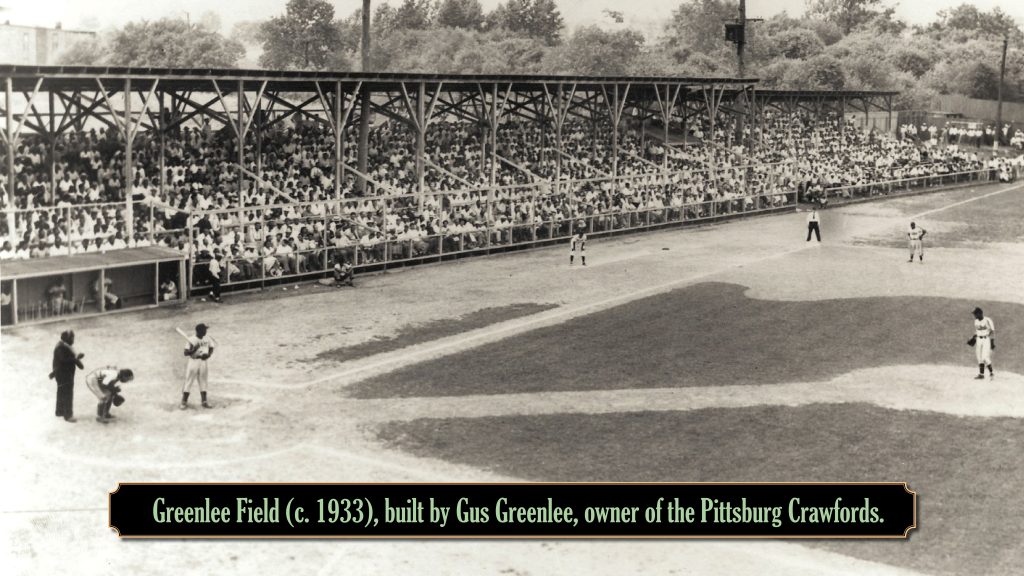
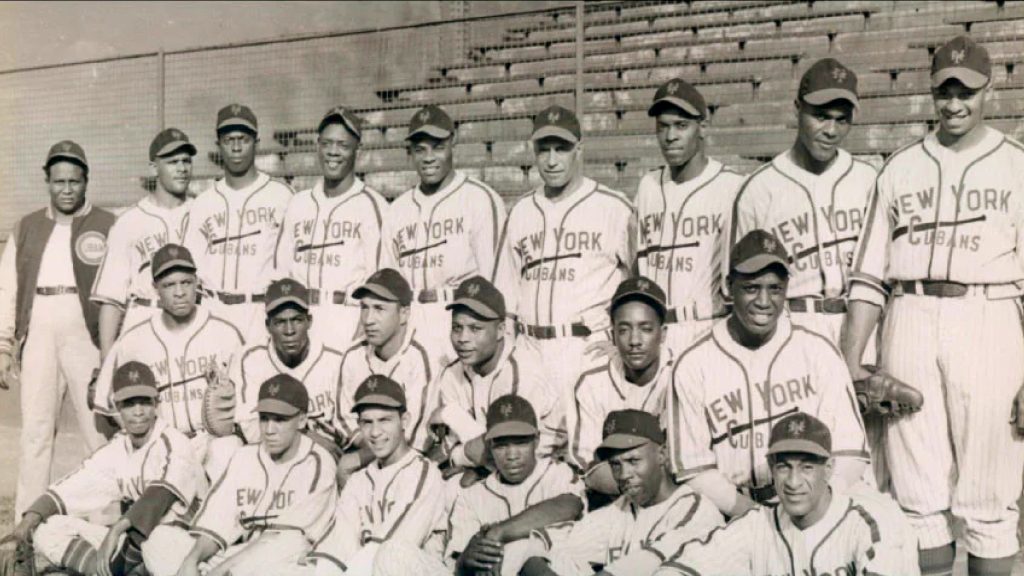
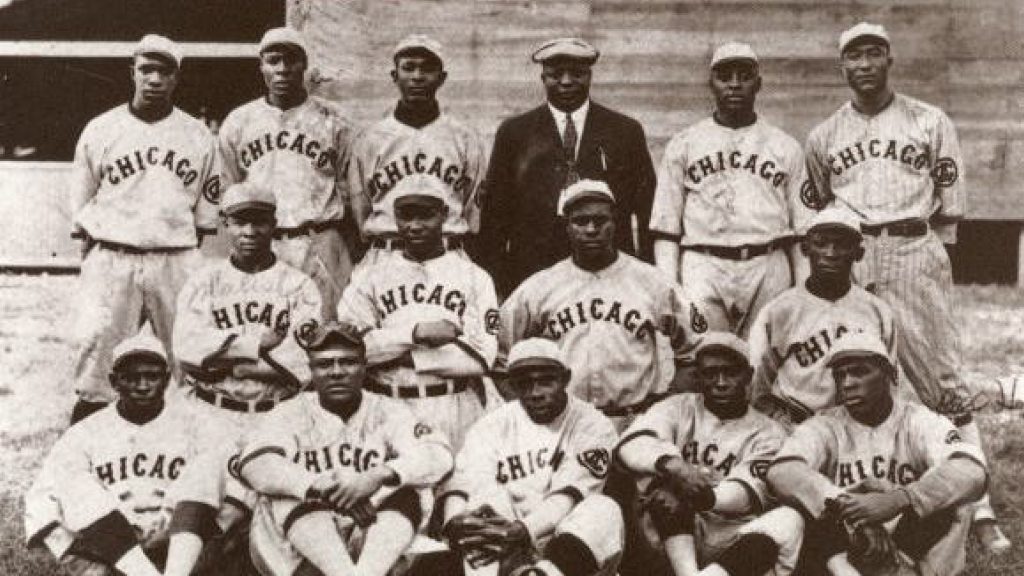
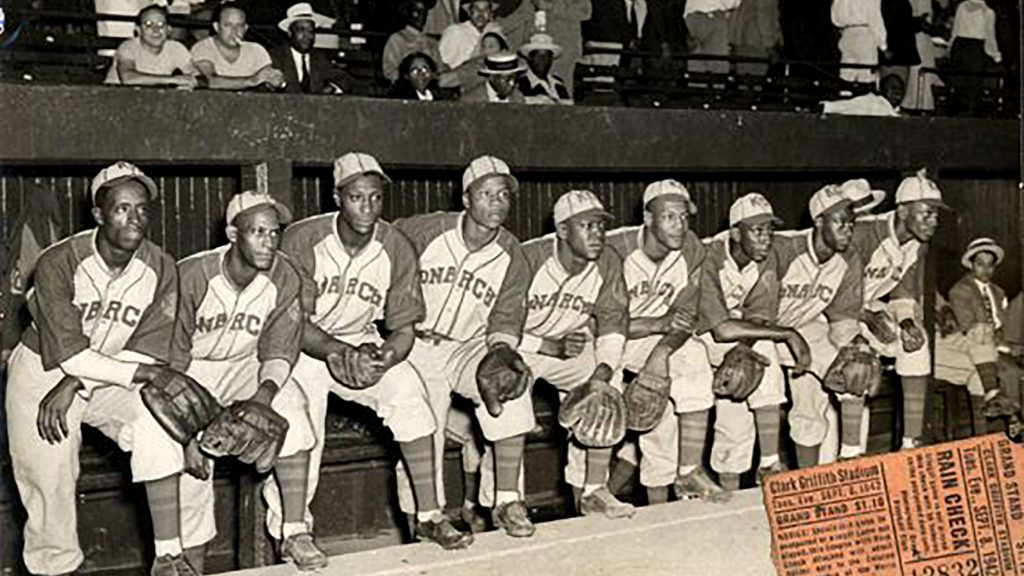
Purchase Transitions by Marcus Shelby on Bandcamp
Fleetwood and Welday
Moses Fleetwood Walker (October 7, 1856 – May 11, 1924), sometimes nicknamed Fleet Walker, was an American professional baseball catcher credited with being the first black man to play major league baseball. A native of Mount Pleasant, Ohio, and a star athlete at Oberlin College as well as the University of Michigan, Walker played for semi-professional and minor league baseball clubs before joining the Toledo Blue Stockings of the American Association (AA) for the 1884 season.
Though research by the Society for American Baseball Research (SABR) indicates William Edward White was the first African-American baseball player in the major leagues, Walker, unlike White (who passed as a white man and self-identified as such), was the first to be open about his black heritage despite the widespread prejudice. His brother, Weldy Walker, followed suit the same year, joining the Toledo ball club. Walker played just one season, 42 games total, before injuries led to his release.
Wikipedia contributors. (2025, August 3). Moses Fleetwood Walker. In Wikipedia, The Free Encyclopedia. Retrieved 03:06, September 10, 2025, from https://en.wikipedia.org/w/index.php?title=Moses_Fleetwood_Walker&oldid=1304037583
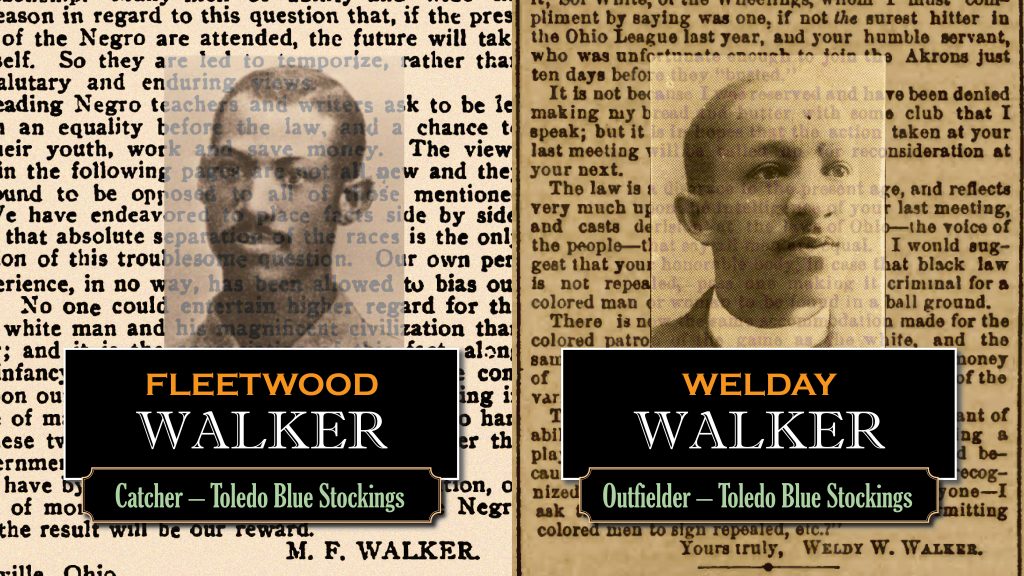
Umpire’s Aria
“An umpire has got to have guts. And for certain, an umpire can count on being no one’s friend—at least while on the diamond. An outsider at best, an umpire has to maintain a safe distance from the players he presides over and can never show an iota of favoritism. It makes for a lonely life, one spent on the fringes looking in,” wrote Bob Motley, the best-known black umpire from the Negro Leagues, in his autobiography, Ruling Over Monarchs, Giants & Stars – Umpiring in the Negro Leagues & Beyond. Motley umpired in the Negro American League from 1947 through 1958. He was the last surviving umpire from the Negro Leagues, and helped to found the Negro Leagues Baseball Museum in Kansas City, Missouri. Robert C. Motley passed away at the age of 94 in 2017.
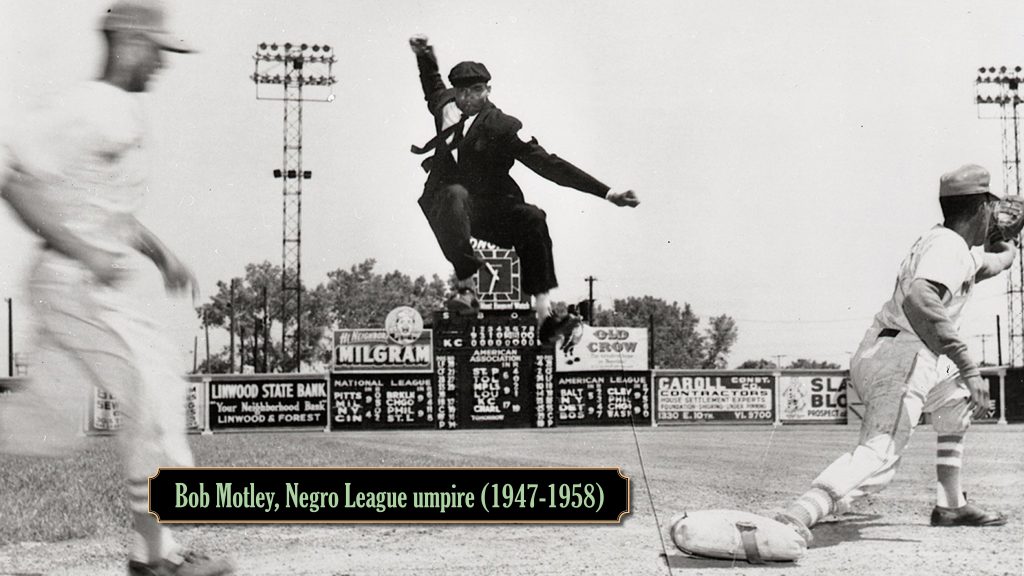
Jackie Broke Barriers
Jack Roosevelt Robinson (January 31, 1919 – October 24, 1972) was an American professional baseball player who became the first Black American to play in Major League Baseball (MLB) in the modern era. Robinson broke the color line when he started at first base for the Brooklyn Dodgers on April 15, 1947. The Dodgers signing Robinson heralded the end of racial segregation in professional baseball, which had relegated black players to the Negro leagues since the 1880s.
Wikipedia contributors. (2025, August 28). Jackie Robinson. In Wikipedia, The Free Encyclopedia. Retrieved 03:26, September 10, 2025, from https://en.wikipedia.org/w/index.php?title=Jackie_Robinson&oldid=1308302465
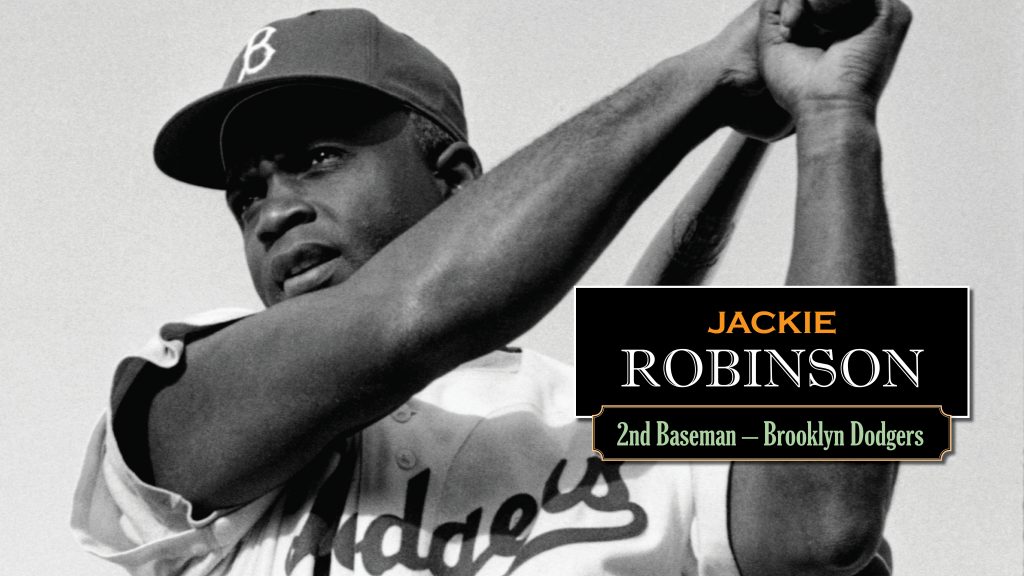
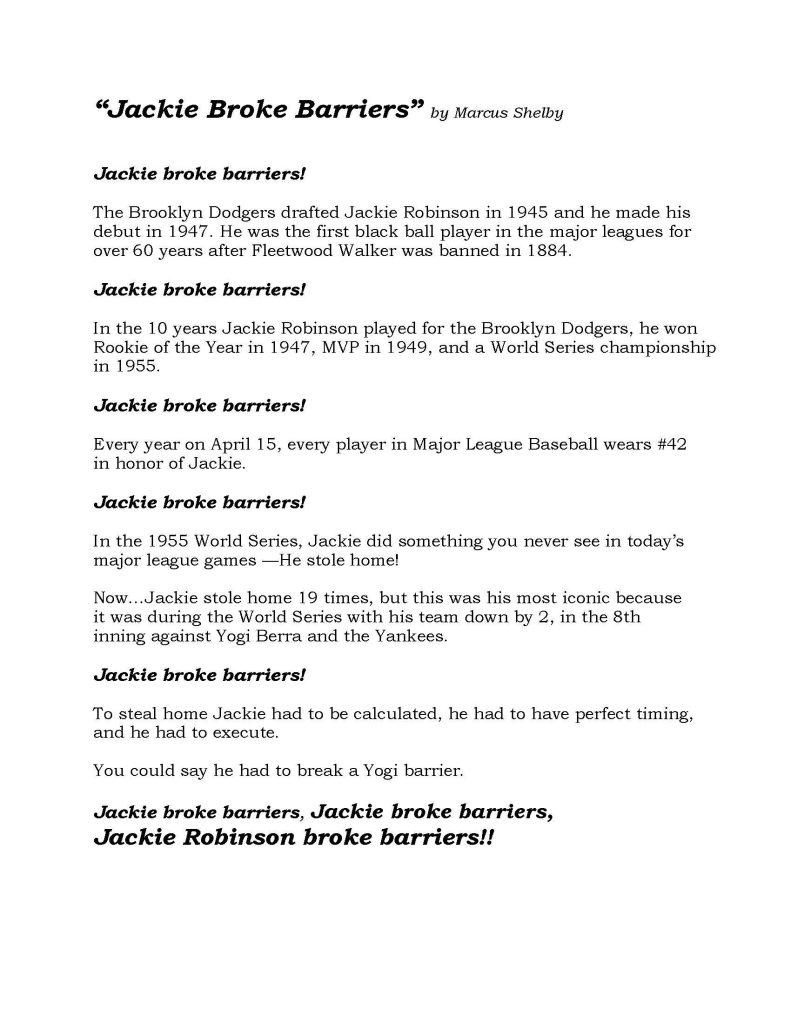
Did You See Jackie Robinson Hit That Ball?
By far the best known song honoring Robinson is Buddy Johnson’s classic, “Did You See Jackie Robinson Hit That Ball?” Johnson submitted this sheet music for copyright in June, 1949. In August of that year, his recording of the song (Decca 24675) hit its peak position on the charts at number 13. Today many baseball fans are familiar with Count Basie’s recording on the Victor label (Victor 20-3514), featuring vocalist “Taps” Miller. This recording, made in the Victor studios in New York City on July 13, 1949, has become synonymous with the song itself.
Library of Congress: “Did You See Jackie Robinson Hit That Ball?” https://www.loc.gov/collections/jackie-robinson-baseball/articles-and-essays/baseball-the-color-line-and-jackie-robinson/did-you-see-jackie-robinson-hit-that-ball/
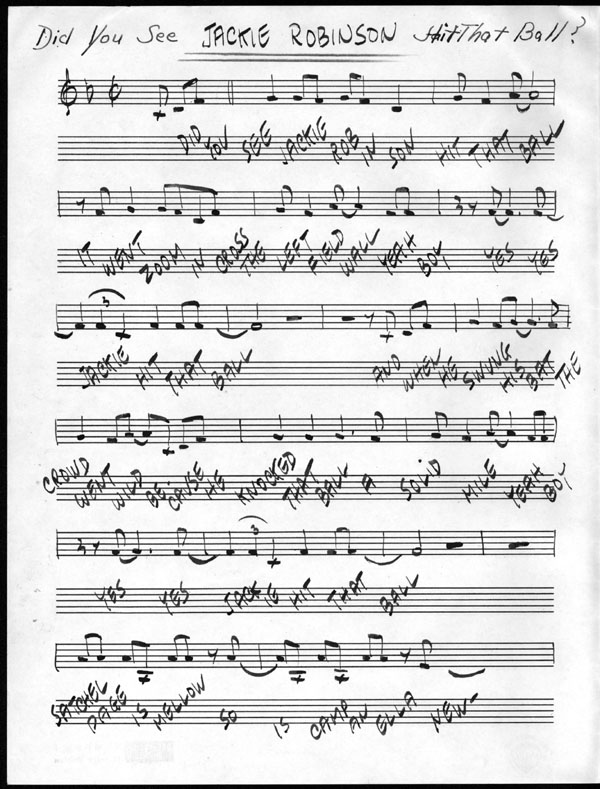
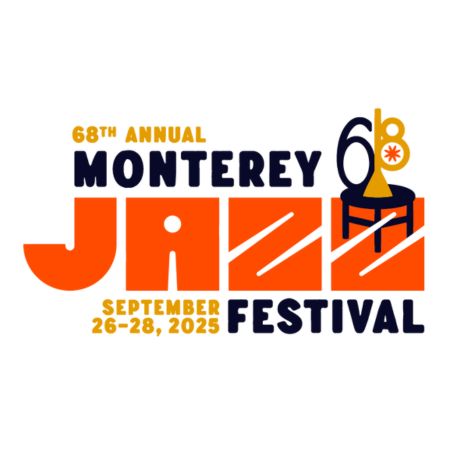
Since 1958, the nonprofit Monterey Jazz Festival has been committed to celebrating America’s creativity and cultural heritage by presenting legendary jazz musicians, composers, and young rising stars.
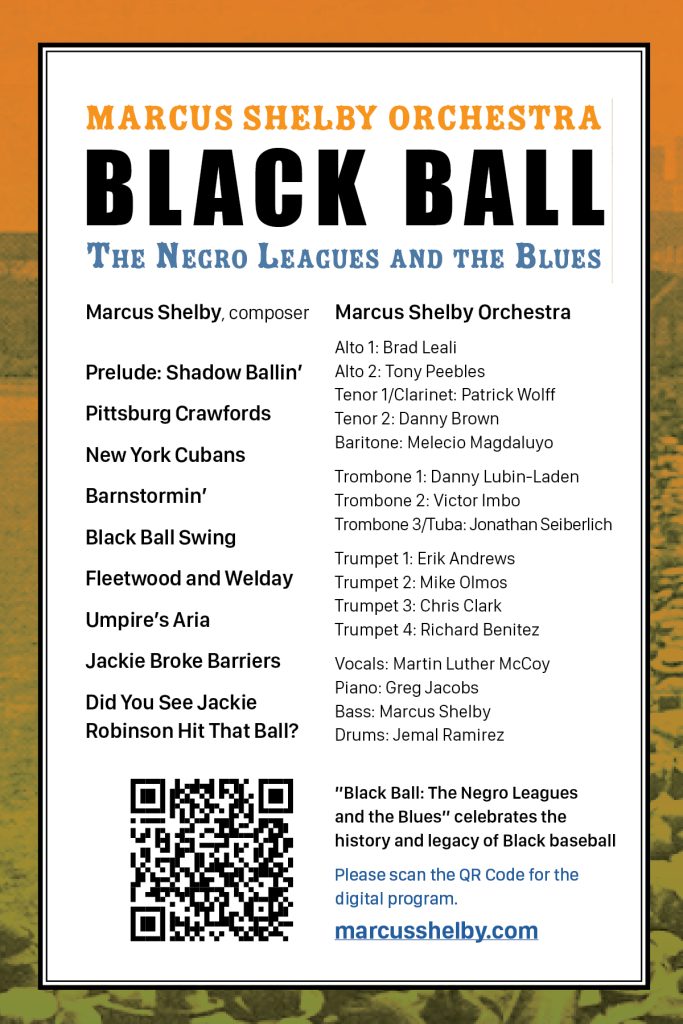
PERFORMANCE PICS
Yerba Buena Gardens Festival 2025
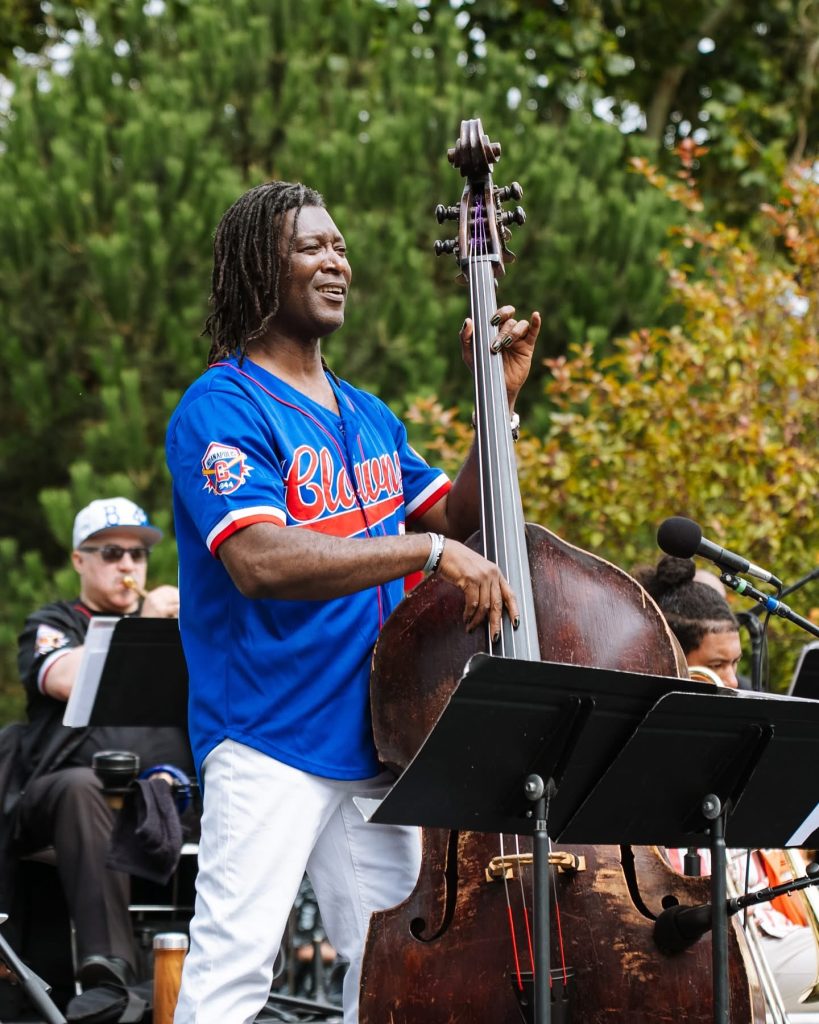
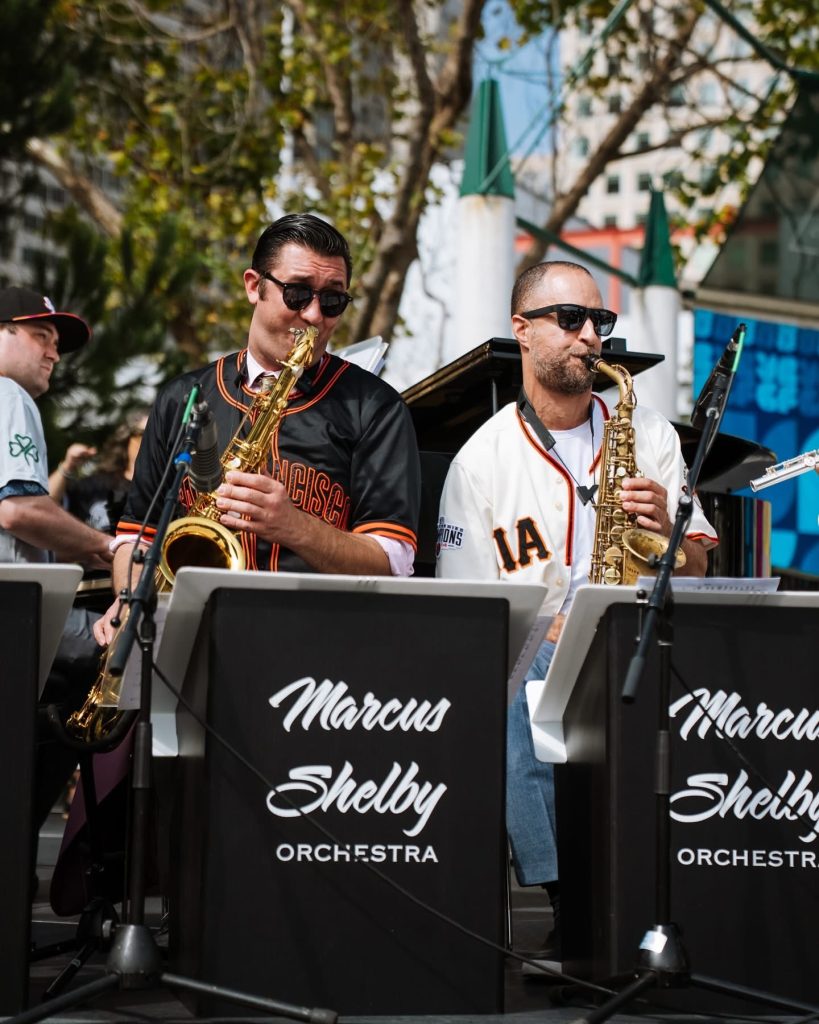
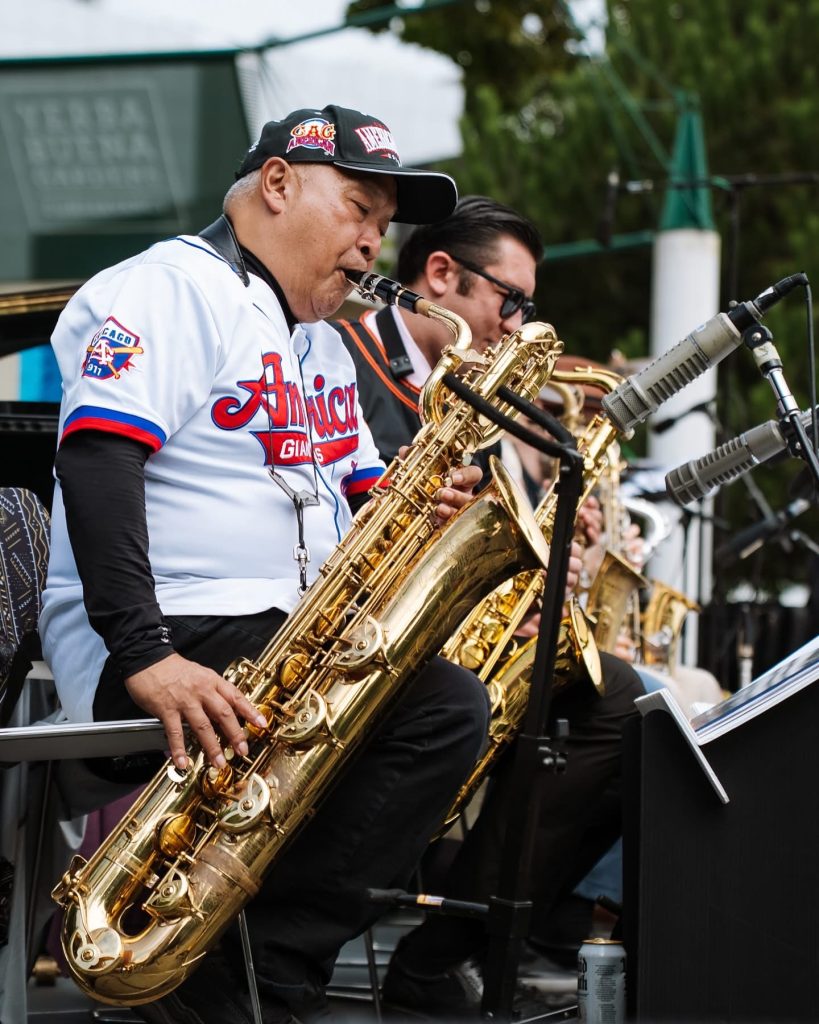
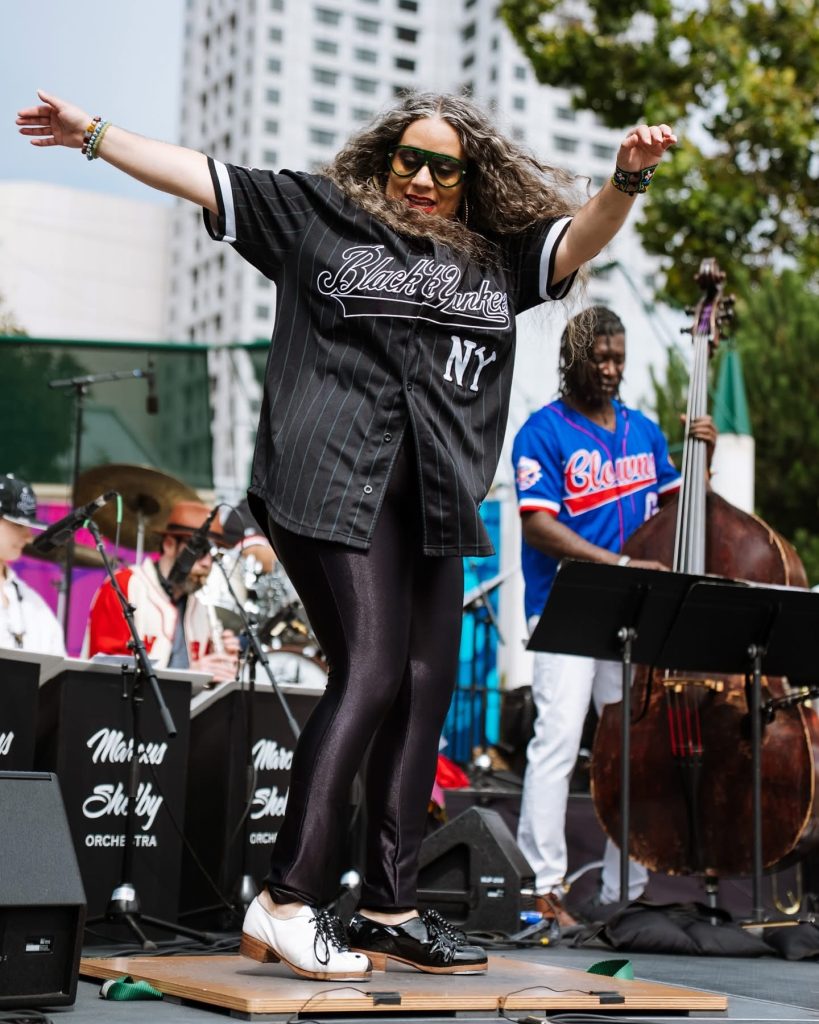
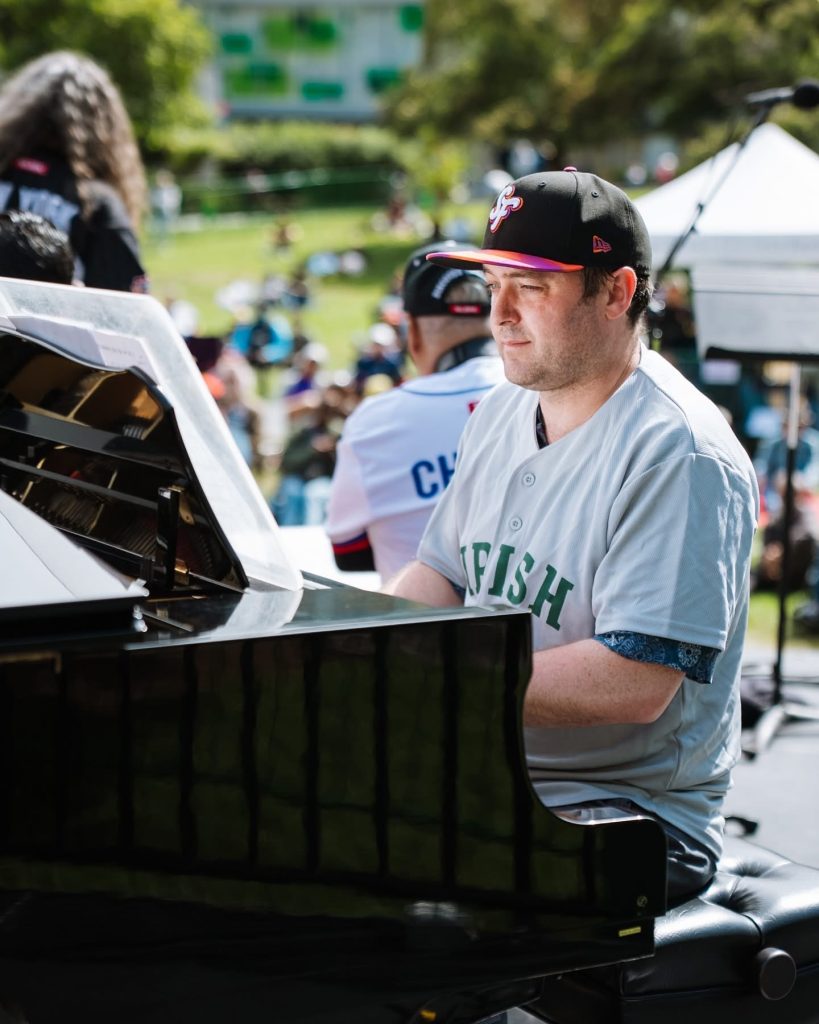
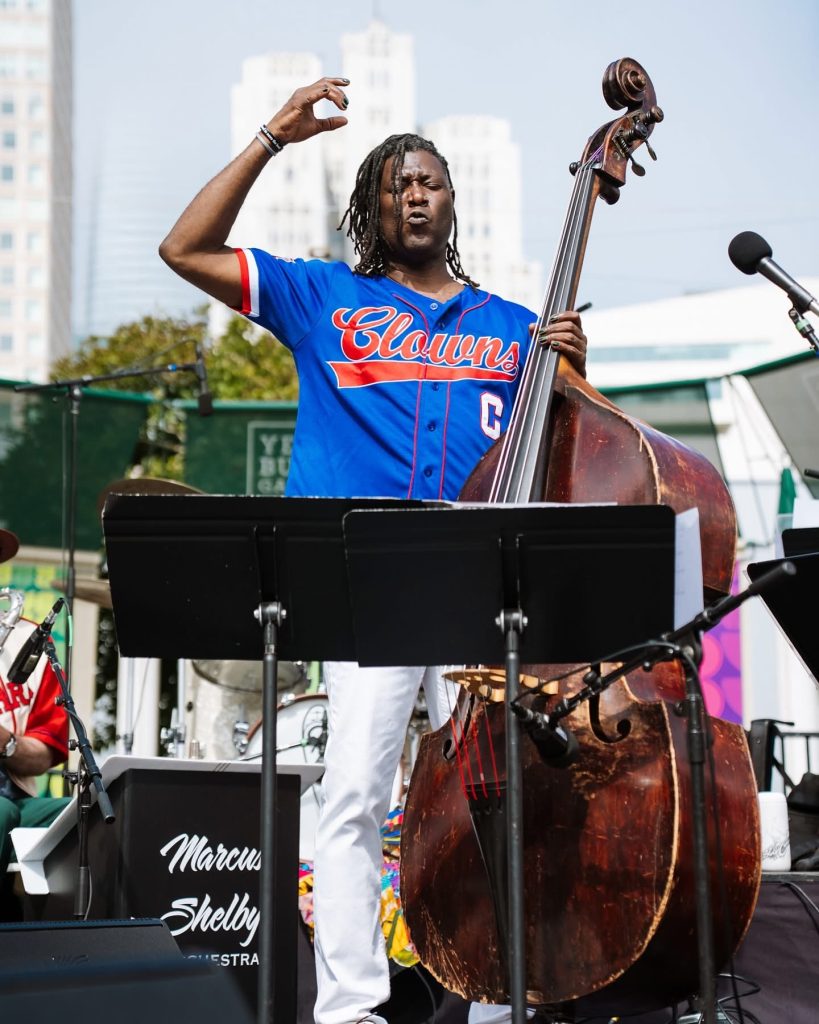
Presidio Theatre 2025
